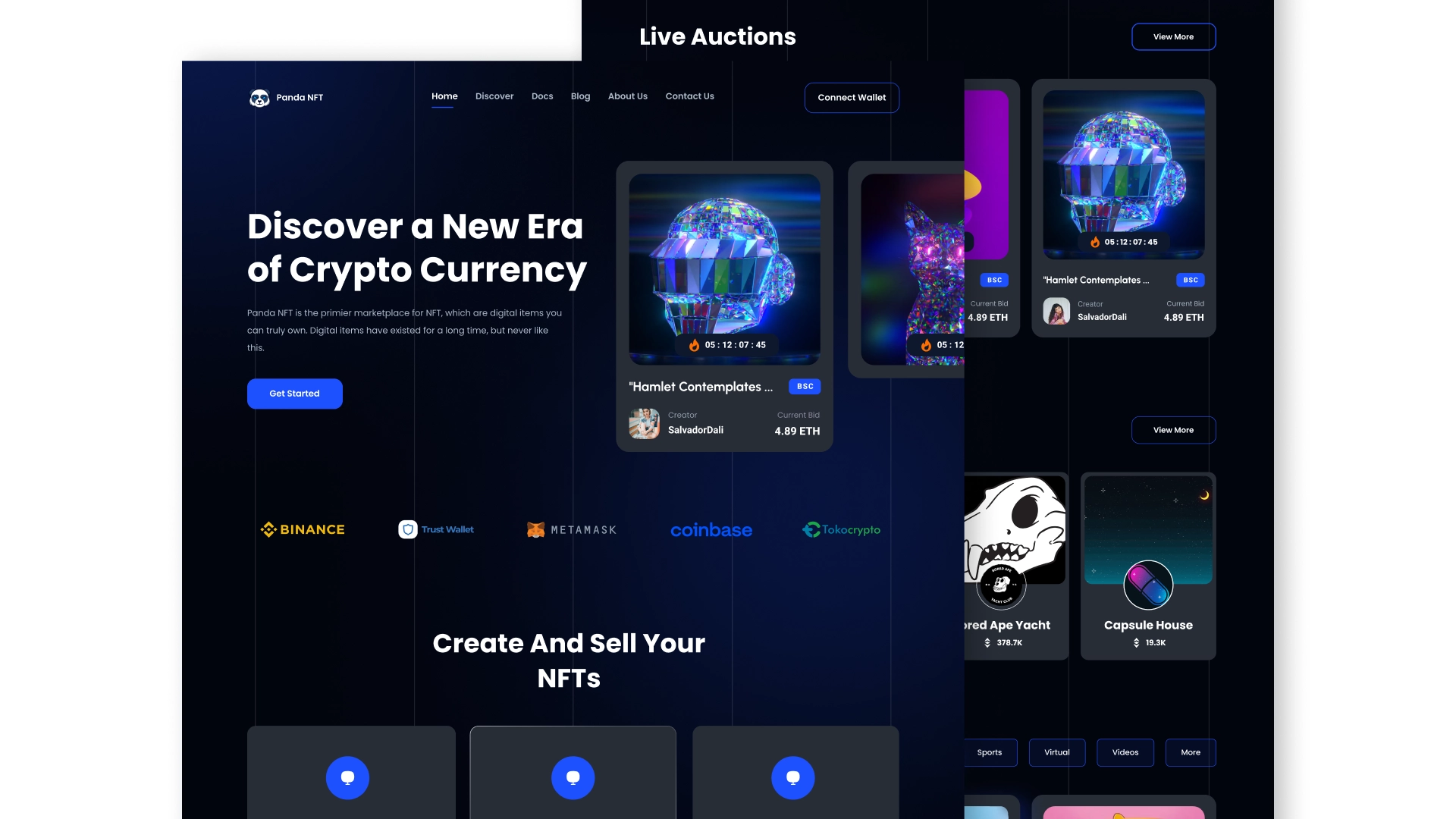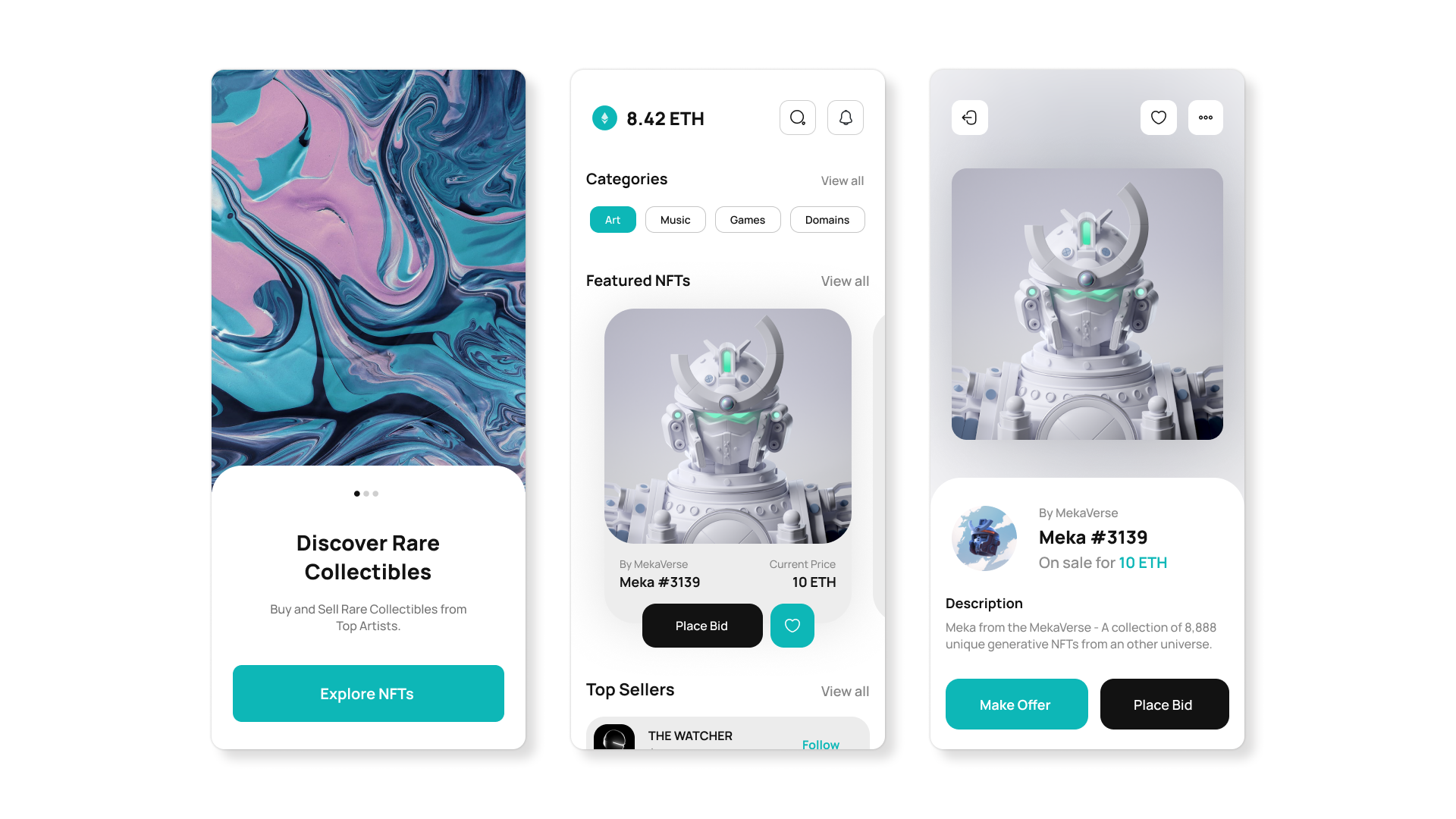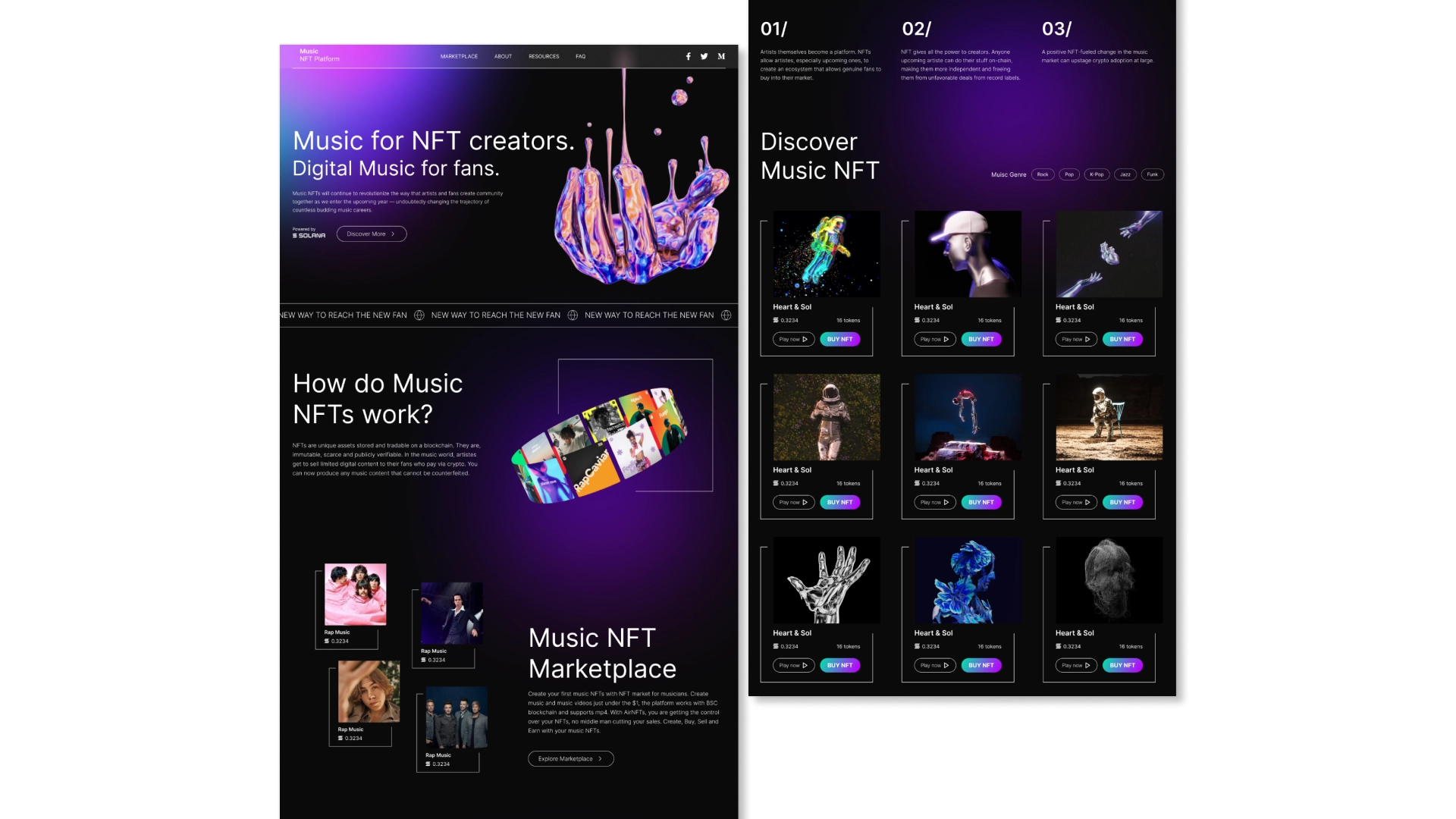At the end of 2021, the NFT project market grew by 300%, and many large NFTs are sold at auctions for millions of dollars, for example, Beeple’s collage “Every Day: The First 5,000 Days” cost the buyer $69 million. In addition, this area is actively supported by celebrities who tokenize their music, paintings, videos and other creative items, which makes the NFT industry even more attractive for investment.
NFT itself is a digital token that represents ownership rights to physical or virtual assets. Unlike cryptocurrencies, it is not fungible. This means that no two NFTs are identical and one token does not equal the other. Therefore, they cannot be used as a means of payment in retail outlets or for trading on crypto exchanges. Instead, NFT marketplaces are used to buy and sell them.

An NFT marketplace is a blockchain trading platform that allows you to store, sell and buy non-fungible tokens. Moreover, the functionality of such a service allows users to create their own NFTs. To do this, special smart contracts add metadata to each new asset and prescribe all the necessary parameters, including the name, inseparability and address in the blockchain. After that, such NFTs can also be put up for auction at a fixed price or auction.
For a client, an NFT marketplace looks like a regular online store, but from a technical point of view, it has much more extensive and complex functionality. Here are the most important features to implement:

Step 1. Collecting information and analytics
First of all, the development team studies the requirements of the customer and conducts a market analysis. This is necessary in order to ensure the technical feasibility of the project even before the start of production.
In addition, at this stage, you need to answer several fundamental questions:
Step 2. Technical documentation
When all the necessary information is collected, the technical documentation of the project is developed. It specifies the requirements for the NFT marketplace, the technology stack that will be used in production, the production plan, security parameters, and other important information. Based on the created document, the cost and the planned period of the project implementation are calculated.
Step 3. Design
At this stage, business analysts, together with designers, design an effective user interface architecture, a logical navigation system and mockups of individual pages, with a description of the placed functionality. Thus, a kind of framework of the trading platform is formed, taking into account the likely user paths.
The appearance of the NFT marketplace plays an important role, since it forms the first impression of a person about the project. Therefore, it is extremely important that the design inspires confidence, is convenient and easy to understand.

Step 5. Frontend Development
The frontend is an external part of the trading platform that receives user requests, transfers them to the server for further processing, and displays the result in a format that is comfortable for perception. In addition, this part is responsible for the reliability and performance of the interface. The technological stack of a frontend developer may differ, depending on the specifics of the project, but the most commonly used are:
Step 6. Backend and smart contracts
The most voluminous stage of production, within which the server part of the platform is created, which is responsible for the logic of the entire project. In addition to the basic functionality, developers need to program the work with the blockchain, smart contracts and crypto wallets, as well as implement a reliable auction mechanism.
Stack of technologies for the implementation of the backend part:
Step 7. Testing
After the technical development is completed, you need to make sure that the platform works correctly and in accordance with the original plans. To do this, the project is transferred to the QA department, where its multi-level testing is carried out. If errors are found, they are submitted for revision to responsible specialists, and then re-checked.
The development of functional NFT marketplaces and other high-load blockchain solutions is one of the main specializations of AVADA MEDIA.
To implement such projects, our company has already formed teams of specialists with experience in working together, thanks to which we can guarantee high quality and speed of product implementation.
Our works
Contact the experts Have a question?
Developed by AVADA-MEDIA™
The user, filling out an application on the website https://avada-media.ua/ (hereinafter referred to as the Site), agrees to the terms of this Consent for the processing of personal data (hereinafter referred to as the Consent) in accordance with the Law of Ukraine “On the collection of personal data”. Acceptance of the offer of the Consent is the sending of an application from the Site or an order from the Operator by telephone of the Site.
The user gives his consent to the processing of his personal data with the following conditions:
1. This Consent is given to the processing of personal data both without and using automation tools.
2. Consent applies to the following information: name, phone, email.
3. Consent to the processing of personal data is given in order to provide the User with an answer to the application, further conclude and fulfill obligations under the contracts, provide customer support, inform about services that, in the opinion of the Operator, may be of interest to the User, conduct surveys and market research.
4. The User grants the Operator the right to carry out the following actions (operations) with personal data: collection, recording, systematization, accumulation, storage, clarification (updating, changing), use, depersonalization, blocking, deletion and destruction, transfer to third parties, with the consent of the subject of personal data and compliance with measures to protect personal data from unauthorized access.
5. Personal data is processed by the Operator until all necessary procedures are completed. Also, processing can be stopped at the request of the User by e-mail: info@avada-media.com.ua
6. The User confirms that by giving Consent, he acts freely, by his will and in his interest.
7. This Consent is valid indefinitely until the termination of the processing of personal data for the reasons specified in clause 5 of this document.
Send CV
Contact us in any convenient way for you:
+ 38 (097) 036 29 32